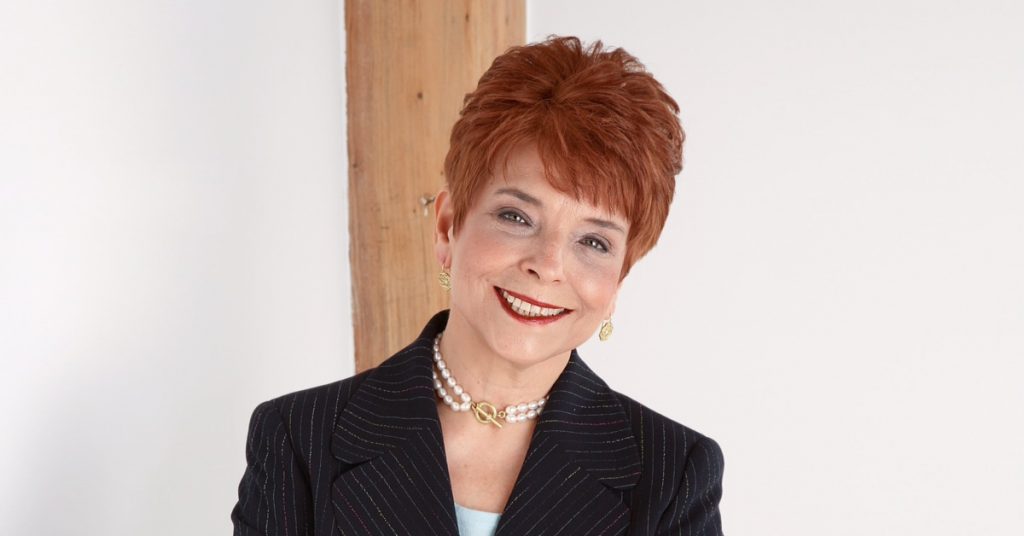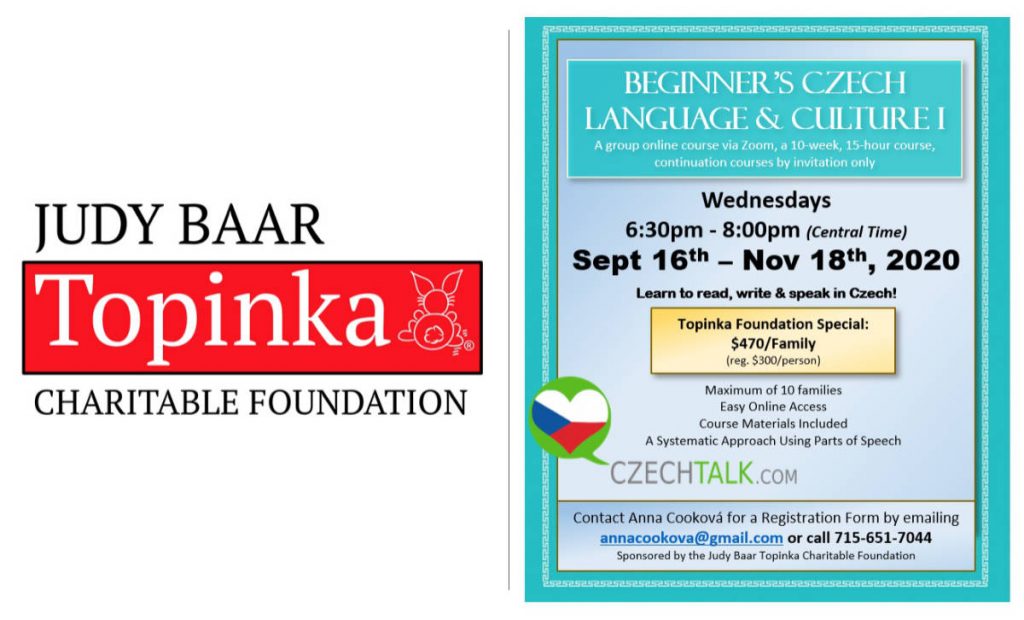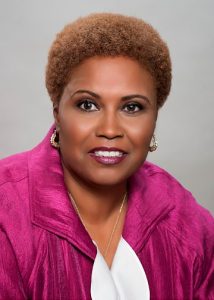The Musical Arts Institute received a generous extension of a baby grand piano from the Topinka Family Charitable Foundation. This video is from the dedication ceremony with Joseph Topinka. It features the piano talents of Joshua Mhoon, as well as statements from our board members.
Judy Baar Topinka Charitable Foundation
Announcing the CAHME 2023 Award and Scholarship
The Judy Baar Topinka Foundation is so proud of this year’s CAHME/Judy Baar Topinka Foundation Scholarship. The scholarship is designed to help graduate students as they face the ever increasing costs of being a student especially during residencies where often they are unpaid. The Judy Baar Topinka Foundation would like to offer more types of these scholarship in Judy’s name. Consider a donation to help our future healthcare leaders.

Registration is open for the 2023 CAHME Award Ceremony at ACHE Congress on Sunday, March 19, 2023. Purchase tickets here before the early bird deadline on February 15. For questions, contact Dana Alexander, MHA, CAHME Communications and Engagement at dalexander@cahme.org.
Along with generous corporate partners, foundations, board, and personal donations, CAHME takes great pride in recognizing through our CAHME Awards program those programs and their students that have distinguished themselves.
This year’s recipients will be honored during the CAHME Award Ceremony at ACHE Congress on Sunday, March 19, 2023, and are acknowledged in the January 17, 2023 edition of Modern Healthcare.
- The CAHME/ Canon Solutions America Award for Sustainability in Healthcare Management recipient is the George Mason University – Master’s in Health System Management Program, recognized for excellence in sustainability as a combination of cultural competency, community involvement, environmental focus, and accessibility.
- The CAHME/George and Regi Herzlinger Innovation Education Award recipient is the Boise State University – Master in Population & Health Systems Management Program in collaboration with the Healthcare Financial Management Association (HFMA), recognized for excellence in providing a foundation in the principles of innovation for future leaders to be the change needed in healthcare.
- The CAHME/Sachs Family Foundation in Honor of Michael A Sachs for Entrepreneurs in Healthcare Management recipient is Michael Allgood, MSHA Candidate from the University of Louisville. Michael overcame many obstacles to pursue his dream of becoming a healthcare manager and focuses his career in service to the community.
- The CAHME/Dawn Gideon Foundation Scholarship for Women Supporting Communities in Need recipient is Adriana Kotchkoski, MHA Candidate from the University of Iowa. Adriana is passionate about enhancing the patient experience and improving their interaction with the healthcare system through community-based service organizations.
- The CAHME/Judy Baar Topinka Foundation Scholarship for Health Policy recipient is Thomas Levu, MHSA Candidate from Georgetown University. Thomas dedicates his knowledge in healthcare and in law to offer pro bono legal assistance to indigent clients to ensure access to vital health services.
- The CAHME/Tim Campbell Scholarship for Selfless Service to Others and the Community recipient is Steven Mosher, MSHA Candidate from Virginia Commonwealth University. Steven’s service to US veterans transcends his role as the Chief Biomedical Engineer in the VA to creating a culture focused on employees, veterans and their family.
- The CAHME/Fawn Lopez Future Leaders Award recipient is Lilian Abbo, MD, MBA Candidate at the University of Miami. Dr. Abbo is a patient advocate, health system leader and frontline disease expert managing infection prevention and antimicrobial stewardship through a complex ecosystem in Miami, Florida.
Visit cahme.org/awards to learn more.
Leadership and commitment to the common good is flourishing through CAHME’s Accredited programs and their students. Congratulations to these exceptional programs and students who are advancing the quality of healthcare management education.
Announcing the CAHME 2022 Award and Scholarship
The Judy Baar Topinka Foundation is so proud of this year’s CAHME/Judy Baar Topinka Foundation Scholarship. The scholarship is designed to help graduate students as they face the ever increasing costs of being a student especially during residencies where often they are unpaid. The Judy Baar Topinka Foundation would like to offer more types of these scholarship in Judy’s name. Consider a donation to help our future healthcare leaders.

Registration is open for the 2022 CAHME Award Ceremony at ACHE Congress on March 27, 2022. Purchase tickets here before the early bird deadline on February 17. For questions, contact Dana Alexander, MHA, CAHME Communications and Engagement at dalexander@cahme.org.
Along with generous corporate partners, foundations, and board/personal donations, CAHME takes great pride in recognizing through our CAHME Awards program those programs and their students that have distinguished themselves.
This year’s recipients will be honored during the CAHME Award Ceremony at ACHE Congress on March 27, 2022, and are acknowledged in the January 17, 2022 edition of Modern Healthcare. These programs and students exemplify our mission of advancing the quality of healthcare management education.
- The CAHME/ Canon Solutions America Award for Sustainability in Healthcare Management recipient is the University of Minnesota, MHA, recognized for excellence in planning and providing a student learning experience focused on sustainability, accessibility, and diversity, equity, and inclusion, following the death of Mr. George Floyd in Minneapolis.
- The CAHME/George and Regi Herzlinger Innovation Education Award recognized a “gold recipient” at Trinity University, MSHA, and two “silver recipients”, Florida International University, Healthcare MBA, and Thomas Jefferson University, MS in Healthcare Quality and Safety. These three programs implemented approaches to curriculum development that focuses on the evaluation, adoption and invention of innovation. Trinity is distinguished as the “gold recipient” because of its PRISm Pitch Competition which brings innovation processes to the entire field.
- The CAHME/Dawn Gideon Foundation Scholarship recipient is Melissa DePaola, LMSW, MHA Candidate from Stony Brook University. As a practicing social worker at Suffolk County Department of Health, she distinguished herself through servant leadership.
- The CAHME/Judy Baar Topinka Foundation Scholarship recipients are Brittany Morrison, MHA Candidate from Johns Hopkins University and Yazmyne Melgoza, MHA Candidate from California State University, Long Beach. Brittany is distinguished in her role with the Washington State Department of Health where she led a team in responding to COVID-19 outbreaks. Yazmyne, in her role at Torrance Memorial Medical Center, was part of a team that worked to provide more than 5,000 face shields in 3 days early in the COVID-19 pandemic, and also served on vaccine leadership teams.
- The CAHME/Tim Campbell Scholarship recipient is Jarrell Mahusay, MHA Candidate from the University of North Florida. As a military liaison at the Convoy of Hope in Honolulu, he provided volunteer opportunities to serve the community in need. As the president of the UNF HASA Student Association, he expanded mentorship opportunities, established a case competition club, and is a passionate advocate for diversity in healthcare management.
Visit cahme.org/awards to learn more.
These programs and students give hope in these difficult times, that leadership and commitment to the common good is flourishing through CAHME’s Accredited programs. Join me, in congratulating all of the winning programs and students.
Judy Interview with Windy City Times in 2014

Judy was interviewed by Matt Simonette at the Windy City Times during her 2014 campaign for a second term as the Illinois Comptroller. The interview is shown below:
State Comptroller Judy Baar Topinka, long a fixture of Illinois politics, is facing off against Lt. Gov. Sheila Simon and libertarian candidate Julie Fox in order to serve a second term.
Topinka previously served three terms as Illinois state Treasurer and served in both houses of the legislature. She made an unsuccessful attempt at running for governor in 2006.
Simon, who has trailed Topinka in the polls, contends that Topinka has not done enough to modernize the comptroller’s office and make it transparent. Topinka, however, points to a number on online portals the public can use to access information about state spending, and said her office hopes to develop a new portal that better delineates TIF spending.
WCT spoke with Topinka about the logistics of her office, her relationship with the Republican Party and her support for Illinois’ LGBT community.
Windy City Times: You have a difficult position in that your office has to pay the state’s bills when there is quite often not enough money in the state coffers to cover them. Why are you now looking to return to the job for another term?
Judy Baar Topinka: We want to do a great job. We have work to do with this office. We’ve made already great strides in getting it into the 21st century. There’s more to do. It’s been a quiet, fairly sleepy office for many years. We want it not only to be the best in the state of Illinois but I want it to be the best in the United States, because if we can do some fiscal housecleaning, the state will run more efficiently and transparently, and with more accountability. There will be more eyes focused on this office so they can track money, and if anything goes astray, they can catch it more quickly.
WCT: From a fiscal standpoint, what advocacy role can the comptroller play in a state like Illinois, where our finances are so frequently out of hand?
JBT: I know that we had an impact in keeping the state from borrowing something like $4 billion. I went to committee and raised all sorts of holy hell. I told them I couldn’t pay those bills. … They relented. You’re going to hear that from me: Borrowing is not the answer. We have to learn to cut. There’s consolidations and we will save money. When we save money we make money, and can put it into programs that are necessary and needed instead of just frittering it away. Ultimately, we’ve spoken out against silly budget games that will come out from the legislature.
WCT: Smaller vendors face exceedingly difficult circumstances when the state is not able to pay on time. Your website mentions that you try to “build partnerships with small businesses and social service organizations.” How do you prioritize the order in which they get paid?
JBT: We have programs in with these funds that don’t lend themselves to that. A hospital is not nursing home, which is not a small business, and so on. You can’t you really get a one-size fits all solution. When you have things that have to get paid by law, or when they’re in a fund because they pay for [needs for] children, they immediately go to the front of the line, by law. I have deal with our investors, by law. I have deal with our payroll. It has to go up front, by law. That’s just a fact of life.
After that, we try to do our not-for-profits, because our not-for-profits depend on funding, and you’re dealing with our most vulnerable citizens—your old, your sick, your mentally challenged and physically challenged. Really they have nowhere else to go. So I want to make sure that they have first notice, so that they keep going. Otherwise, we’re going to be throwing people out on the street. People will call us from just about anywhere—legislators, aldermen, people on the street, parents. We check them out. If the need is there, we will try to expedite the payment. If we can’t get them all of the money they have coming, we’ll try to get them part of the money. We’ll try to pay them in a predictable fashion, so that they can make book on it, so they’re not hanging out to dry. We try to build that predictability in.
After that, we try to do small businesses because they can’t ride out not being paid. … I don’t want to lose them because small businesses generate jobs. Everyone else is “come as you are.” … I think that’s a fair way of doing it.
WCT: How would you characterize your relationships with Gov. Quinn and the legislature?
JBT: Very cordial. I’m very comfortable working both sides of the aisle. I come from a long history of working with the legislature so when you come from there, you know your way around fairly well. With Quinn, it’s a good, professional relationship. It’s okay. It’s very comfortable. Nothing special, but it’s comfortable.
WCT: You spoke of having a “heart attack” were tax rates to be rolled back. Why do you think there would be problems ahead if the tax rates would fall back to their earlier levels?
JBT: There are always problems, even if the income tax stays. If it’s done in an orderly fashion, the way Toni Preckwinkle handled that awful one-cent sales tax that Stroger put out there, where she did it incrementally. If you do it incrementally and it can get you to where you’re going, there isn’t a sudden shock. It wouldn’t just be a shock to the system of the body politic of the state of Illinois, it would be a shock to the system of me. It would give me a heart attack because I couldn’t pay for it. I would just run out of money and we would have some real problems.
WCT: You have butted heads with your own party because you have been pro-choice and supportive of gay rights, among other matters. What keeps you in the Republican Party?
JBT: The Republican Party has been known for being independent. People go their own way. I’m a Republican because I think the Republican Party stands for small government. I don’t like government spawning all over. The more bureaucracy you have, the harder it is to navigate and the more miserable it is for the public, and the more costly it is. I like the fiscal end of it. I like to make sure we get what we paid for and that it’s well handled.
But I’m a moderate. I’ve always been a social moderate and I make no bones about it. I voted for the Equal Rights Amendment when I was in the legislature, gay rights—I could never understand what the problem was with gay rights. Jeepers, gay people are people. There’s rights under the constitution, everybody’s supposed to have them, and it bugs me when folks pick on gays or anybody else. I have a lot of gay people working in my office; they’re wonderful employees. We don’t single them out, or anything; they’re just part of the family.
WCT: What role does the comptroller play in securing equal rights and protections for LGBT Illinoisans?
JBT: I think part of it is being visual and vocal about it. If you’re a constitutional officer, theoretically you’ve got some status and you serve as somewhat of a role model. I know I’ve always tried to live my life as somewhat of a role model. When I get that bully pulpit going, I’m out there in the forefront. I [supported] civil unions and marriage equality, and I don’t want to see gay people harassed in any capacity, because that’s not fair. I’ll get down and fight for that cause, because I believe in what’s fair.
Judy Baar Topinka Charitable Foundation is collaborating with CzechTalk.com

Judy Baar Topinka loved her heritage and knew Czech before she could speak English. In honor or Judy and in memory of her love of her heritage, the Judy Baar Topinka Charitable Foundation is collaborating with CzechTalk.com to bring you and your family this great language opportunity.
Karen A. Yarbrough Selected as Second Winner of the Judy Award
The Judy Baar Topinka Foundation is honored to announce that the recipient of the second Judy Award named after Judy Baar Topinka is none other than Cook County Clerk Karen A. Yarbrough. Clerk Yarbrough’s biograph is below. Like Judy, Clerk Yarbrough was also a State Representative from the 7th District. What an incredible representative for Judy’s legacy! We will be presenting the award on September 5th in McCook, Illinois.
Karen A. Yarbrough
Cook County Clerk Karen A. Yarbrough, Cook County’s first African American and female Clerk, has a B.A. in Business Management from Chicago State University, an M.A. in Inner City Studies from Northeastern Illinois University, and advanced leadership studies at Harvard’s Kennedy School of Government. Karen has served on numerous boards, enhancing the quality of life for citizens and has received many prestigious awards highlighting her advocacy, community service and legislative work.
Previously, Karen served as State Representative for the 7th District for 12 years, which included Chicago’s West-Side and western suburbs. As an Assistant Majority Leader in the Illinois House of Representatives, her legislative themes were public health, public safety, and social justice. She has been a stalwart fighter to increase assistance for those incarcerated, and funding for programs that provide a “Second Chance.” In 2007, Karen successfully fought the tobacco lobby as the chief sponsor of “Smoke Free Illinois” and made Illinois the first Midwestern state to go “smoke-free.”
She’s taken on powerful real estate interests in her pursuit of “source of income” legislation that prohibits landlords from refusing to rent to those on subsidies. She sponsored “Quality of Life,” a bill using lottery money to fund groups that treat individuals with HIV-AIDS.
In 2011, Yarbrough, as chief House Sponsor helped make history by passing legislation to end the death penalty in Illinois. This legislation was signed into law by Gov. Pat Quinn making it the 16th state to do so, earning her recognition from the Pope and a Nobel Peace Prize nomination.
Karen and her husband, Henderson, have a blended family of six and share twelve grandchildren and three great-grandchildren.
Join Us For The Award Ceremony on September 5, 2019

